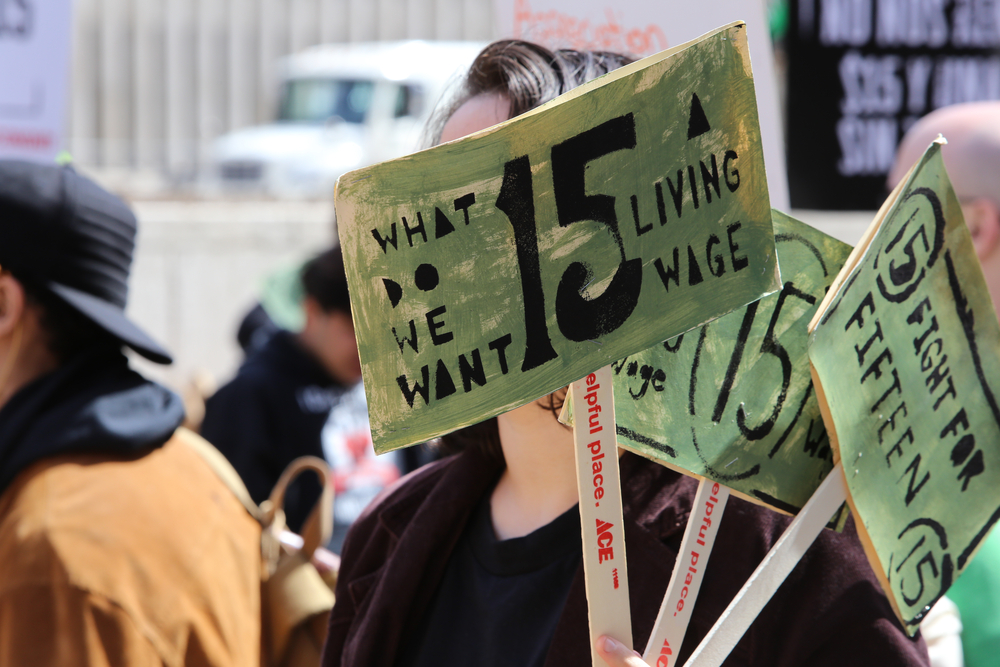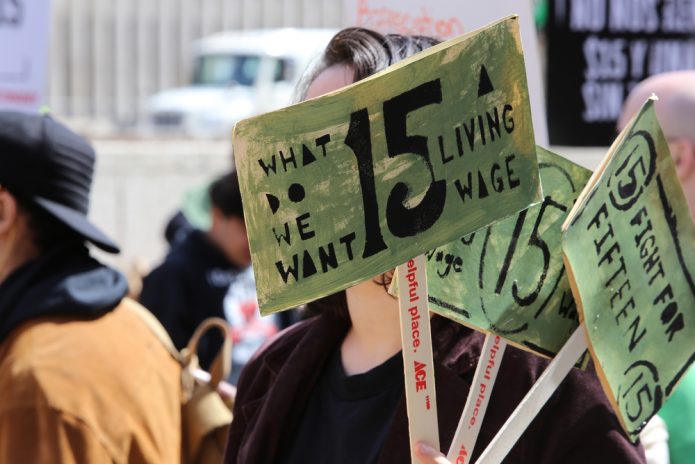For decades, conservative ideologues have insisted that raising the minimum wage will hurt, not help, low-wage workers. Mandating higher wages will cost jobs, the old canard goes, and the obvious solution is to let the free market function unfettered.
This argument received a significant bump from a recent study by the University of Washington (UW) looking at the impact of the minimum wage increase in Seattle, where in 2014 the city council voted to phase in a $15 wage over the next few years.
The UW study appeared to show that the 2015–2016 wage floor increase from $11 to $13 per hour, one phase on that journey to $15, caused low-wage workers’ annual pay to go down, not up, and overall low-wage jobs to also go down.
Free-market fanatics around the country flung praise at the study, and serious publications like the Washington Post deemed it “very credible.” But fortunately for working people, it turns out the study’s findings are far from that.
The research has significant flaws—most glaringly that its data excludes 40% of the Seattle workforce. It also stands in contrast to a massive trove of actually credible studies showing that raising the minimum wage is a boon for working class families and the communities they live in.
For instance, a team led by Michael Reich, an economics professor at University of California-Berkeley, looked at the impact of the Seattle wage increase on the food industry over the same period and found that wages did in fact go up for restaurant workers, and that employment wasn’t affected. These findings were, they claim, “in line with the lion’s share of results in previous credible minimum wage studies.”
Reich and his colleagues have done a significant portion of this research , recently studying cities with the highest minimum wage laws in the country, including Chicago, San Francisco, and Oakland. They’ve consistently found that higher wages boost worker pay and haven’t led to either job loss or a slowdown in economic growth.
…

